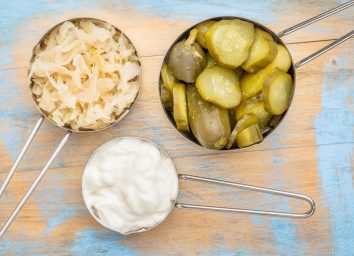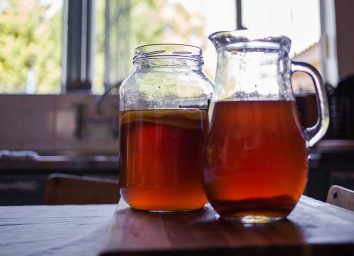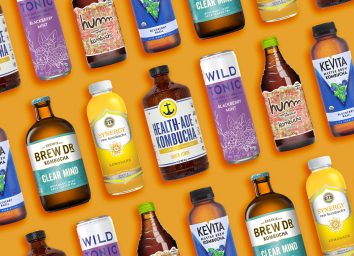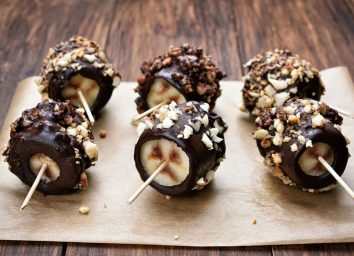How to Spot Fake Kombucha in 6 Easy Steps
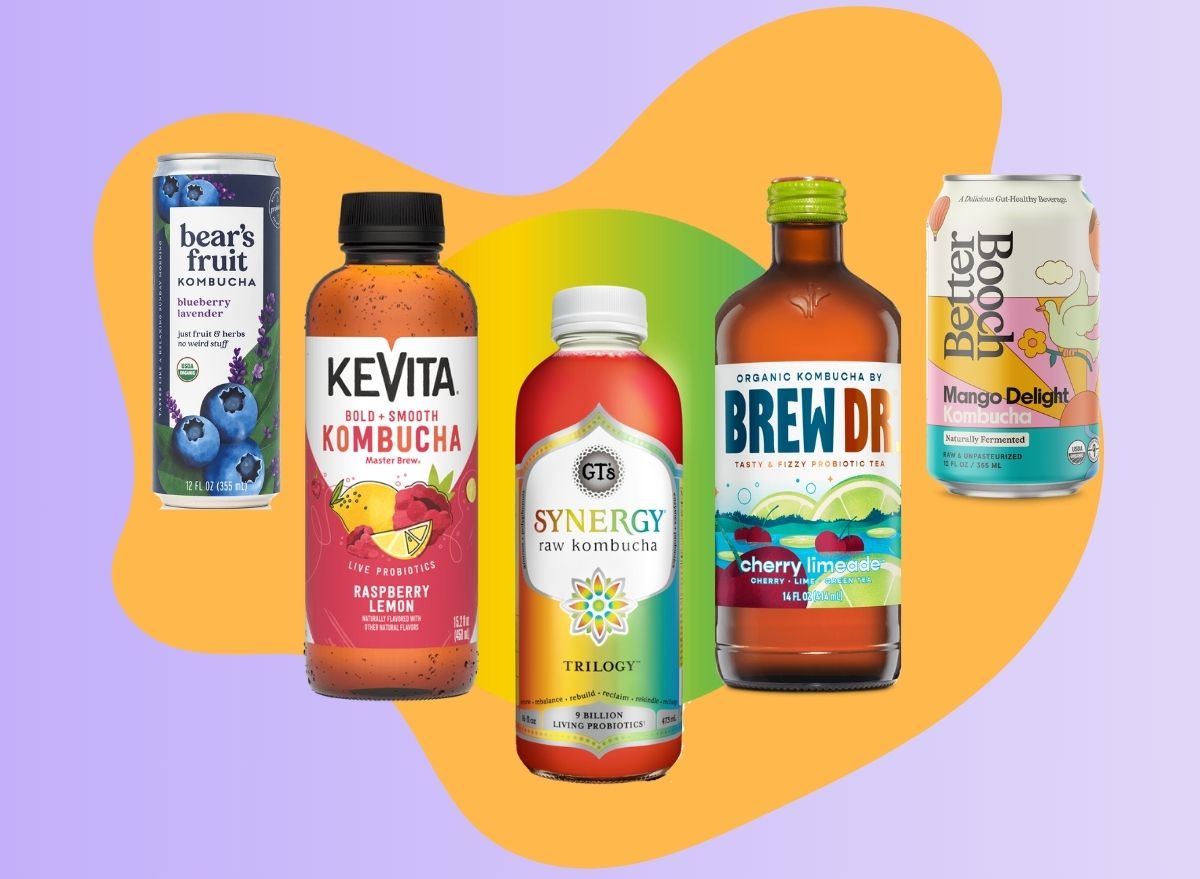
The most trendy source of probiotics these days is a subtly sweet fermented drink that’s just as effervescent as soda. That’s right, you guessed it—it’s kombucha. The probiotic beverage is made with a base of sweetened green or black tea, which is then fermented with a bit of sugar and a symbiotic culture of bacteria and yeast known as SCOBY. The result is a drink that hosts a ton of potential health and weight loss benefits.
Whether you’ve tried the bubbly sip or contemplated it, you’ve probably noticed the many different brands lining the refrigerator section at Whole Foods. So, how do you pick the right kombucha that packs in the most benefits? We spoke to GT Dave, founder and CEO of GT’s Kombucha, and Matt Thomas, the founder and CEO of Brew Dr. Kombucha, to offer insight on how you can choose the right kombucha. Heed their expert advice before you pick up your next booch.
See if the kombucha is refrigerated.
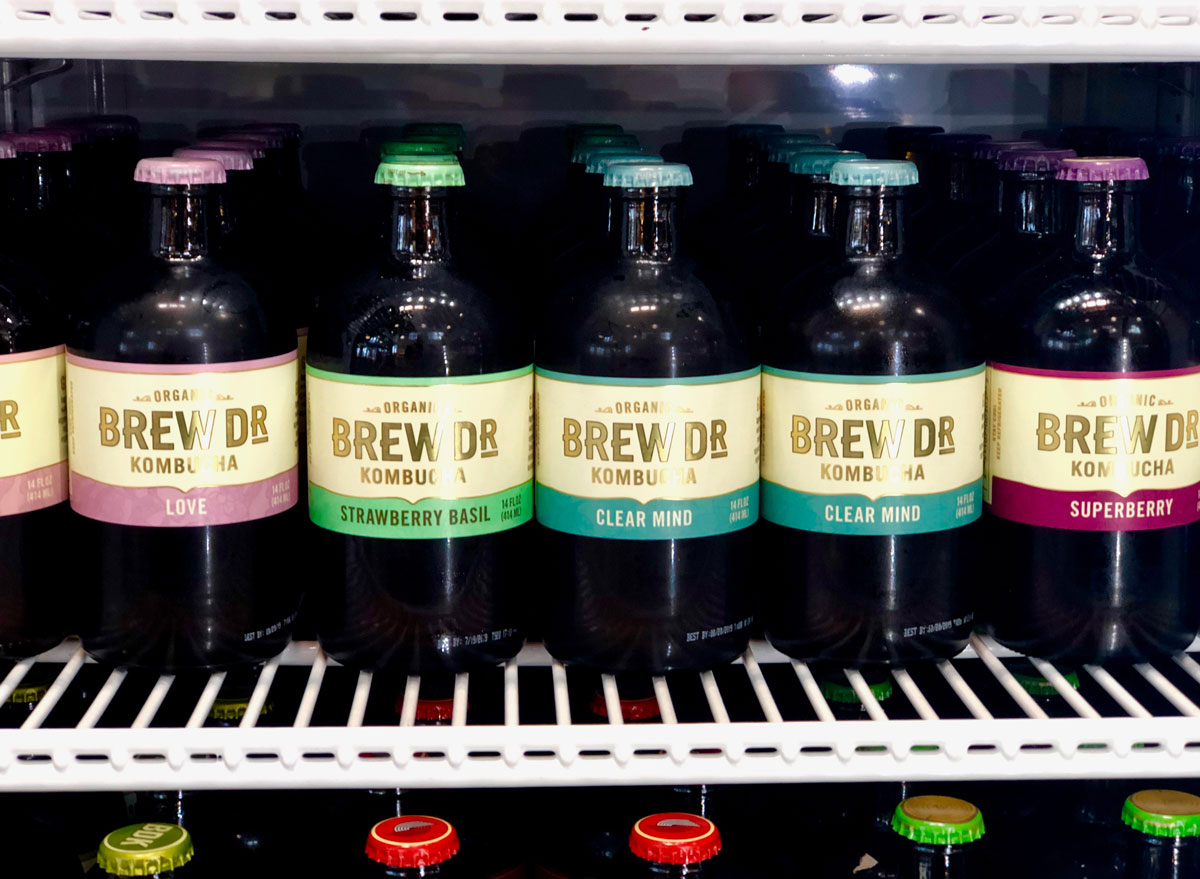
“As a living food, Kombucha is also not shelf-stable, so it should always be kept refrigerated. If you see one that is not stocked in a refrigerated section, that Kombucha is an imposter,” GT Dave says. Kombucha tastes better chilled, anyway.
Look at the ingredient list.
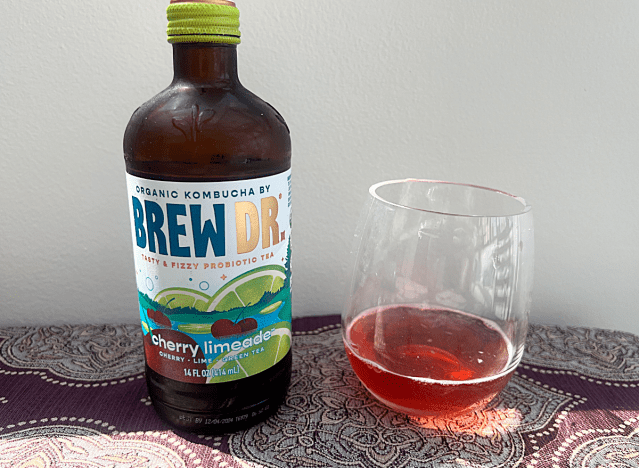
Spotting a fake Kombucha begins before you open a bottle. GT Dave tells us that there are a number of telltale signs you should look out for on the backside of the bottle or can.
“First, Kombucha is crafted with a base of green or black tea, so it’s essential that green or black tea is listed in the ingredients,” he says, adding that you should avoid kombuchas that include tea flavors, extracts, or essences in their ingredient lists. “Also, if ‘kombucha’ is listed toward the end of the ingredient list, then you know that offering is mostly made of water and not full strength,” GT Dave says.
Check the ‘Enjoy By’ date.
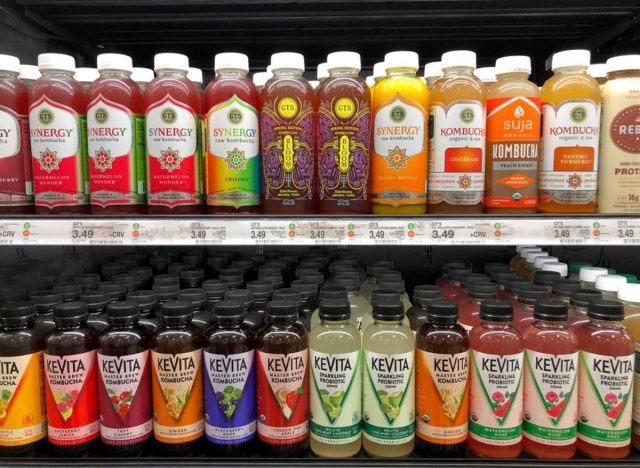
“The keyword to look for when choosing a kombucha that doesn’t use heat to remove the alcohol produced by fermentation would be ‘raw,'” Thomas tells us. “Kombucha should be raw, just as nature intended. If you see one that has been processed, filtered, or pasteurized, it is not authentic,” GT Dave adds. “A simple way to vet this is by checking the ‘Enjoy By’ date, which is often printed on top of the cap. The Enjoy By date should have a short window to reflect the fact that this is a raw, living food.”
If you’re watching your sugar intake, make sure it contains ‘0% juice.’
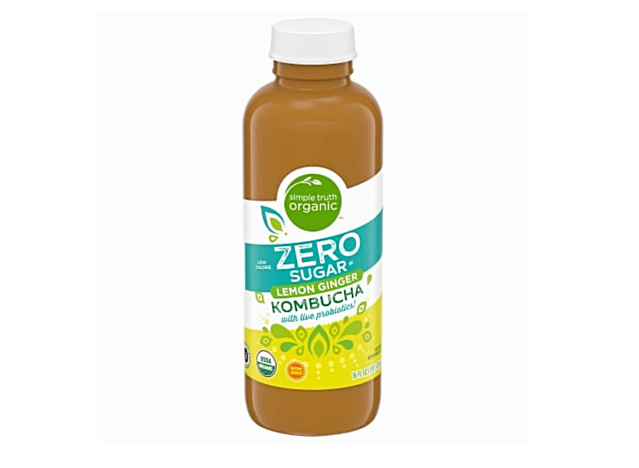
SCOBY requires a bit of sugar to feed the good gut bacteria, so while the sweet stuff is necessary, you don’t want it to dominate the ingredient list. “At Brew Dr., we include sugar on the ingredient list for all our kombucha because it’s a necessary part of the fermentation process; however, our sugar per serving amount is very low because we never add sugar or juice after the fermentation process, which would increase the amount of sugar per serving,” Thomas informs us. “Adding juice as a flavoring is common in the industry, so we’re very proud of the ‘contains 0% juice’ note on each and every bottle of Brew Dr. kombucha.”
Whether a brand uses sugar or sweetened fruit juice to ferment the SCOBY, make sure you’re choosing a kombucha with less than 10 grams of sugar per serving.
Does it have a tangy taste?
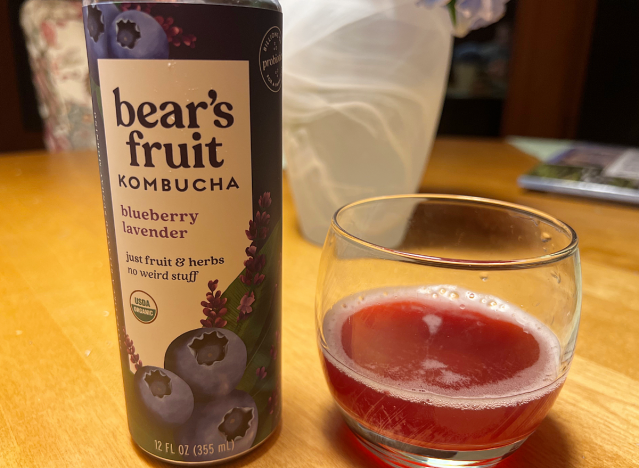
Upon taking your first sip, you’ll notice kombucha’s signature tangy taste—which just happens to be a key indicator to identifying a true booch, GT Dave tells us. “This flavorful characteristic is developed through an authentic fermentation, which can be found in all cultured foods such as kimchi, kefir, Greek yogurt, and sourdough bread. Any kombucha that does not offer this noticeable tangy bite is fake, including those crafted from concentrate.”
Look out for additives.
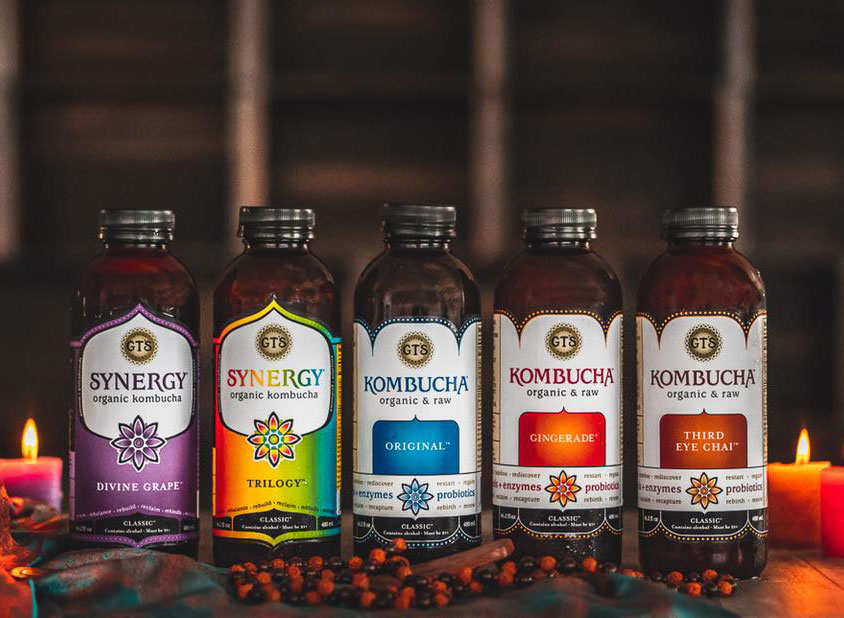
Kombucha is good enough on its own—so why taint it with additives?
“Many brands add powdered probiotic supplements in order to make a health claim. We feel that is disingenuous,” Thomas says. “Pure, raw, fermented kombucha doesn’t need additives like that. In the grocery store, make sure you look for a low sugar per serving amount and always read the ingredient list. If you see any additives such as natural flavors, you’re likely buying a product that cuts corners in order to make claims. We don’t add anything after the fermentation process, meaning that all the flavors, aromas, and probiotics come from the tea blends we use, not from additives or flavorings.”
